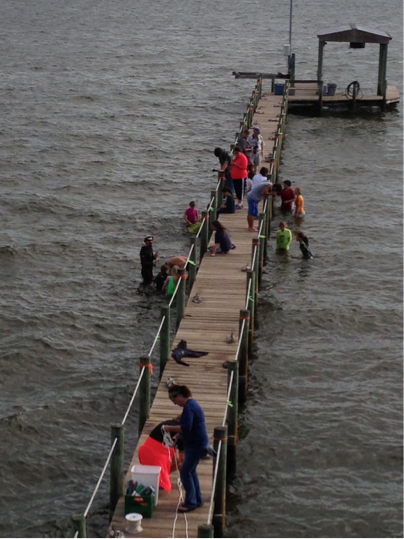Living Dock Deployment: September 30, 2017
The Indian River Lagoon Research Institute (IRLRI) at Florida Institute of Technology is teaming up with the town of Melbourne Beach to create a Living Dock on the Ryckman Park Pier – and volunteers are needed to assist on land as well as in the water.
Through the years, over-harvesting, pollution and coastal construction have wiped out huge numbers of oyster beds, which act as natural reefs that help block wave energy and prevent shoreline erosion. Oysters themselves act as living filters, removing impurities from the water naturally, efficiently and constantly.
The IRLRI is made up of engineers, scientists, contractors, and students who are actively working and researching in the field of coastal water quality remediation and restoration. Together with local community groups, they have created Living Docks, which promote the growth of filter feeders at private and public locations along the Indian River Lagoon. This is done by attaching oyster wraps and bags to docks.
Participants will hang mesh bags filled with used oyster shells from the sides of docks or seawalls, submerged into the water. The presence of the shells attracts oyster larvae, which then propagate and grow.
A single dock with 37 pilings—with an average of 32 oysters per piling—can filter about 21 million gallons of water per year.
The event will take place from 9 a.m. to noon on Saturday, September 30, 2017 at Ryckman Park in Melbourne Beach.
Register here for the event.





